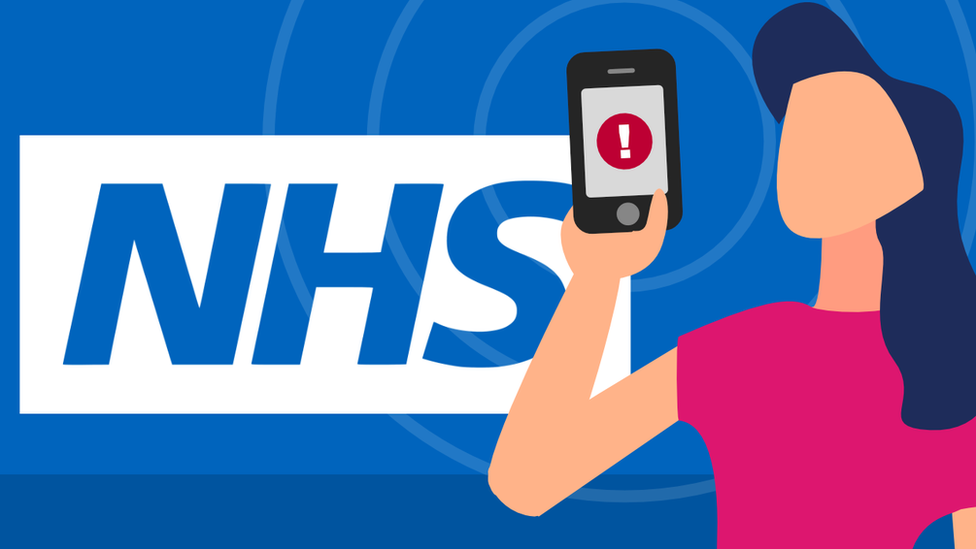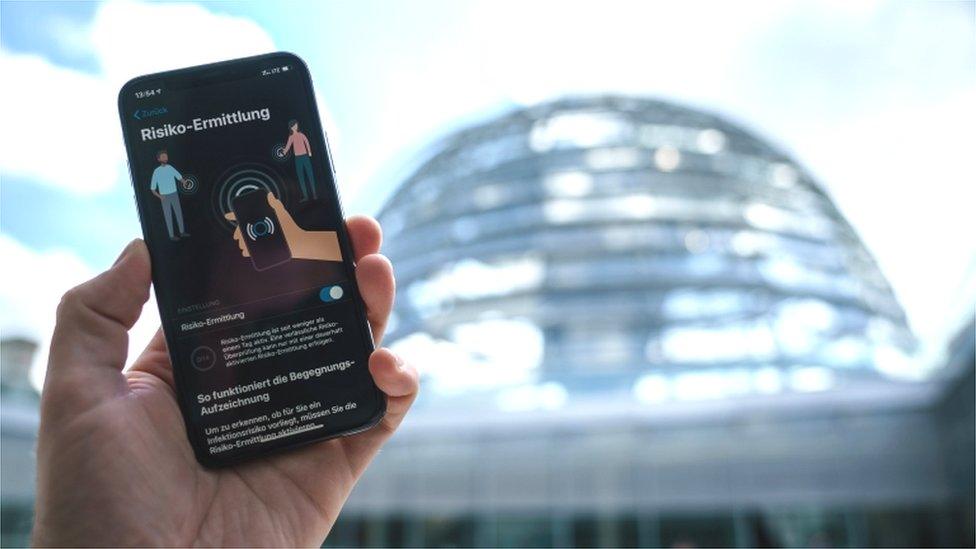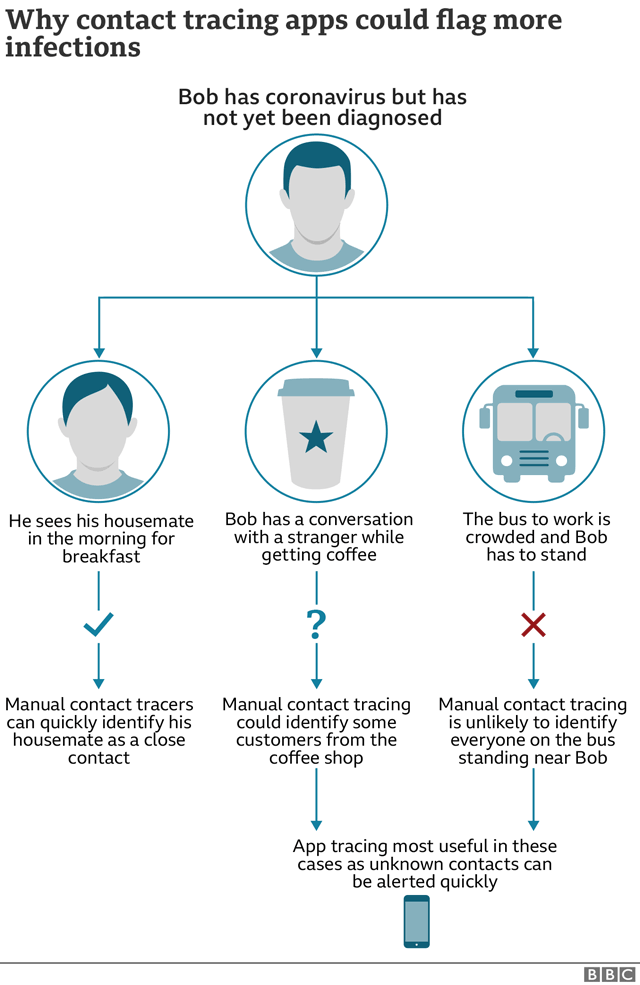Germany has its Covid-19 app, so where's the UK's?
- Published

Around the world, major countries are unveiling new contact-tracing apps as they emerge from lockdown.
Germany has just launched a decentralised app based on the Apple and Google platform. Switzerland, Ireland and Austria are testing theirs. And Japan is said to be unveiling something similar, with the help of Microsoft, later this week.
So the inhabitants of an island just off the south coast of England could be forgiven for asking - has everybody forgotten about us?
Six weeks ago, a trial of the NHS contact-tracing app was launched on the Isle of Wight with great fanfare. Islanders were urged to download it, almost as a patriotic duty - with the prospect that successful testing would lead to a national rollout, at least across England, a couple of weeks later.
The NHS team was quick to claim early success with over 55,000 downloads, something like 60% of the people whose mobile phones were capable of downloading it.
As the weeks went by islanders were assured that much was being learned, even if this early version of the app was quite limited - it sends rather vague messages to people who might have been in contact with someone who has reported symptoms.

Germany's Corona-Warn app represents a big gamble on Apple and Google's contact-tracing technology
Then everything went quiet.
There was no information about the data that had been gathered - how many alerts had been sent out, how people had reacted.
A new version of the app with more questions about symptoms and with test requests and results integrated into the process was due to have been launched last Tuesday, but the date came and went without any update.
Meanwhile, both ministers and Baroness Dido Harding, who is running the wider Test and Trace programme, have stonewalled questions about the app.
"App? What app? Oh that thing that we were so excited about back in April…," characterises a typical response.
WATCH: What is contact tracing and how does it work?
The best thing they can say about it is that it will be the cherry on the cake of contact tracing, rather than the cake itself. As for a timetable, they are no longer willing to provide one.
Hand-holding
This has left the people of the Isle of Wight somewhat baffled.
Among them is a man who has spent a career building commercial apps and knows a bit about the complexities of a launch.
In late May, Steve Clark, who now runs a tech consultancy from the Isle of Wight, blogged some suggestions for making the NHS app more engaging, external.

Mr Clark suggested the app needed to do more to ensure that people kept it active on their phones
He told me that a large proportion of the population had been enthusiastic about getting involved in the trial.
"We were excited and proud," he says, "to be doing our bit for the effort, and to be involved with testing what we assumed was going to be a major plank of getting on top of the virus, and keeping on top of it, as we come out of lockdown."
But he says that enthusiasm has waned because people just don't know what is going on.
He puts that down, partly, to one of the key problems with a lack of "hand-holding" in the app to guide people through it, coupled with the fact that there is no incentive to look at it every day.
Steve still has the NHS app on his phone, but says it seems that others have deleted it.
"Just as you're trying to get something that would roll out nationally, you've actually got people on the trial wanting to remove it - and I think that was substantially because there was no support framework and feedback loop."

Another islander, who did not want to be named, told the BBC their concern was about what the alerts from the app meant: "Currently wishing I hadn't downloaded it. It lacks information - not knowing where this mysterious contact is, or was, and even if they have had a test."
The irony is that the team behind the NHS app believe that version two, which should have been out on the island by now, will deal with many of these issues. But they seem to be as much in the dark as anyone else as to when it will be rolled out.
Bluetooth struggles
Isle of Wight MP Bob Seely says there is some evidence from the trial that it may have helped suppress the virus.
"I look forward to the island getting an update from the Trace and Test leadership team very soon, so that we know what is happening with the app," he says.
And the fact that others are rolling out apps while the NHS project seems becalmed, might not be quite as embarrassing as it seems.
All the signs are that every country is finding it a struggle to prove that Bluetooth contact-tracing apps, whether centralised or decentralised, can really be effective.
A poll in Germany found only 42% of people saying they would download the Covid-Warn app, while 46% said they would not.
Meanwhile, Singapore appears to have decided that a wearable device is more likely to prove an effective method of contact tracing than its TraceTogether app, which has suffered from low uptake and technical glitches.
Nevertheless the UK, which a couple of months ago appeared to be a pioneer in this technology, now looks like an also-ran.
"Where the Isle of Wight goes, Britain follows," said the Health Secretary Matt Hancock when he announced the trial.
But, so far, people on the island could be excused for thinking the app is taking them on the road to nowhere.
